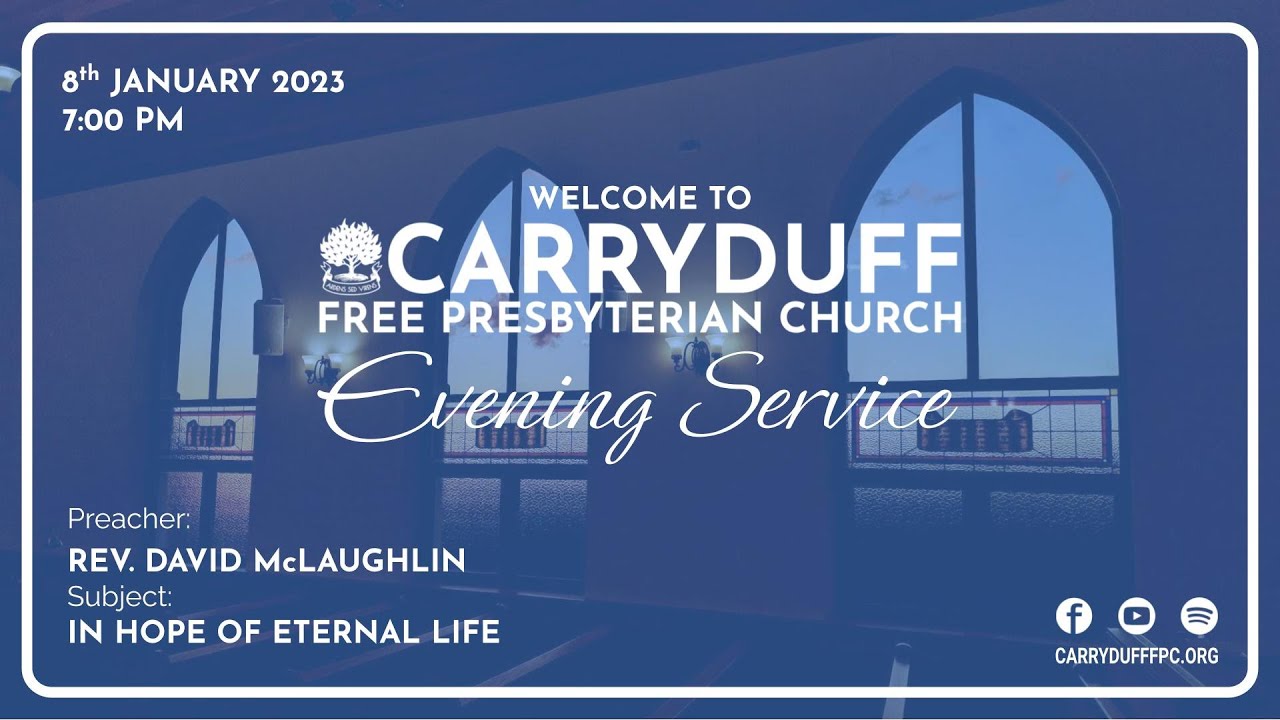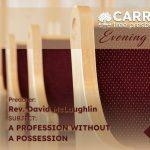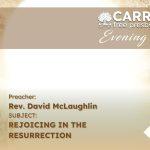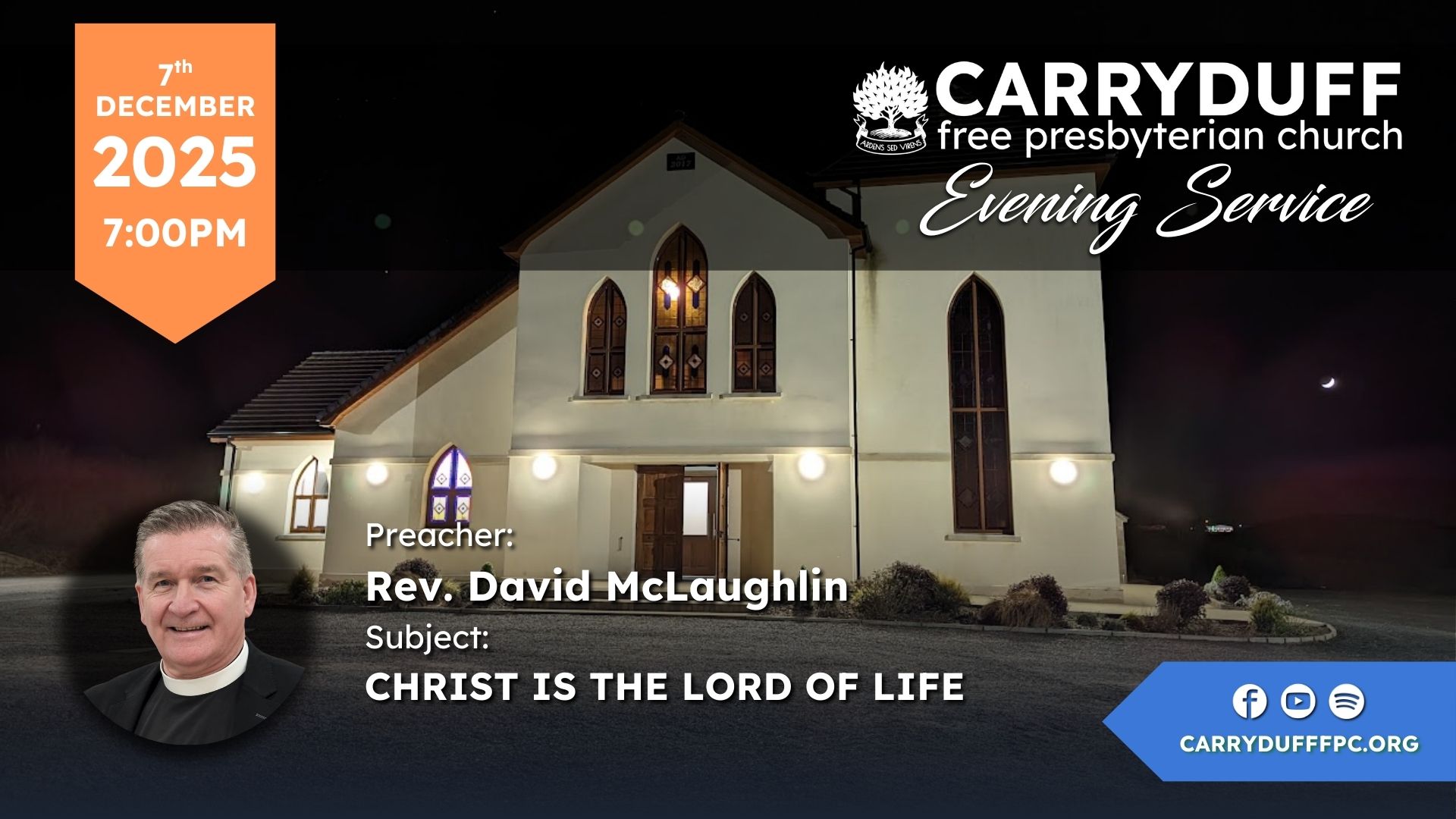Date: WED 8:00 PM 4th June 2025
Singer and testimony: Howard Mackin
Preacher: Mr. Colin Maxwell
Bible Reference: Titus 1:2
In hope of eternal life, which God, that cannot lie, promised before the world began;
Sermon Summary: Titus 1:1-4 – “God Cannot Lie”
Scripture Reading: The sermon begins with a reading from Titus 1:1-4, where Paul introduces himself as a servant of God and an apostle of Jesus Christ, emphasizing the faith of God’s elect, the truth that leads to godliness, and the hope of eternal life promised by a God who cannot lie. This promise, made before the world began, is manifested through preaching entrusted to Paul by God’s command.
Opening Prayer and Context: The preacher expresses gratitude for the gathered congregation, the hymns sung, and the testimonies shared, praying for divine power to preach effectively. The sermon focuses on Paul’s letter to Titus, who was left in Crete to establish a New Testament church by winning souls, discipling believers, and nurturing their faith to foster church growth (Titus 1:5). The preacher notes the strict qualifications for elders (verses 6-9), highlighting the need for strong, spiritual leaders to combat the aggressive opposition of the devil, the enemy of the gospel (verses 10-16).
Main Theme: The sermon centers on the phrase from Titus 1:2, “God, that cannot lie,” emphasizing God’s unchanging truthfulness as the foundation of the church, surpassing human faithfulness. The preacher outlines three main points:
- The Character That Produces the Text (God’s Truthfulness):
- God’s inability to lie stems from His holy nature, unlike humans who are prone to lying due to their sinful nature (Romans 3:4, “Let God be true, but every man a liar”). The preacher illustrates human deceit with anecdotes, such as children lying to avoid blame or Peter denying Christ (Matthew 26:69-75).
- God’s holiness ensures His promises are unbreakable (1 Kings 8:56, “There hath not failed one word of all his good promises”). The Bible’s endurance against attacks, bans, and ridicule further testifies to God’s truthfulness, as it continues to be translated and spread globally.
- God’s hatred of lies is evident in His condemnation of false witnesses (Proverbs 6:16-19, Exodus 20:16) and the eternal consequences for liars (Revelation 21:8). His character guarantees the reliability of His Word.
- The Consequences That Promote the Text (Scripture’s Profitability):
- All Scripture is inspired and profitable for doctrine, reproof, correction, and instruction in righteousness (2 Timothy 3:16). Paul’s letter to Titus is described as a “faithful saying” meant to encourage believers to maintain good works (Titus 3:8).
- God’s truthful prognosis of human sinfulness reveals total depravity, affecting the entire person, including the will. The preacher references Martin Luther’s The Bondage of the Will, which argues that humanity is enslaved to sin and incapable of self-salvation, a doctrine rooted in Scripture despite its unpopularity.
- Unlike deceitful scammers who exploit the vulnerable, God’s assessment of humanity’s sinful state is honest and trustworthy (Isaiah 1:5-6). Denying this truth is akin to calling God a liar, compounding sin.
- Because God cannot lie, believers must trust His declaration that salvation comes only through Christ, by grace through faith, not works (Ephesians 2:8-9). Christ’s death on the cross, ordained by God, atones for humanity’s sin, as no human effort can suffice (Acts 2:23).
- The Choice That Profits from the Text (Response to God’s Truth):
- God’s truth demands a response; it cannot be ignored or refuted. The preacher poses Pilate’s question, “What shall I do then with Jesus?” (John 19:6), urging listeners to accept Christ as the only way, truth, and life (John 14:6).
- Faith is defined as trust in God’s Word, unshaken by opposition or ridicule (Acts 27:25, Paul’s faith during the shipwreck). Salvation through Christ’s atoning work brings justification by faith, offering peace with God (Romans 5:1).
- The preacher warns against man-made religions, which, despite civic tolerance, are deemed “damnable heresy” if they deviate from Scripture. Luther’s challenge to Erasmus underscores the supremacy of Scripture over human decrees.
- The sermon concludes with an evangelistic appeal, urging the unsaved to trust Christ during this “day of grace.” Christ’s invitation to come to Him (Matthew 11:28) and His promise not to cast out any who come (John 6:37) are highlighted. The consequences of unbelief are dire—eternal separation from God with no second chance after death (John 8:24).
Closing Application: The preacher encourages immediate action, inviting listeners to trust Christ in their seats or speak with the leaders afterward. A final prayer thanks God for His truthful Word, the assurance of salvation, and the provision of food for the post-service fellowship, emphasizing that “Sinners Jesus will receive.”
Key Takeaway: The sermon underscores the absolute trustworthiness of God’s Word, rooted in His holy character, and calls for a decisive response to accept Christ as the only means of salvation, warning against the eternal consequences of unbelief.
Subscribe to the podcast here:
Spotify Podcasts | Apple Podcasts | Pocket Casts
Email | RSS | more information here








